Going door to door in remote villages, a team of Kaiser Permanente nurse volunteers worked to keep residents healthy after the hurricane. Pictured above, Lucia Lopez, RN, helps teach residents how to purify water from creeks and rivers.
Two weeks after Hurricane Maria devastated the island of Puerto Rico, 4 Kaiser Permanente nurses from the Central Valley and Antioch were on the ground helping residents with basic health care needs.
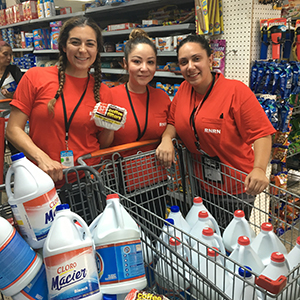
Modesto nurses Lucia Lopez, RN, and Chessie Garcia, RN, Manteca nurse Ruth Somera, RN, and Antioch nurse April Ancheta, RN, were 4 of 327 nurses flown to Puerto Rico in early October by the Registered Nurse Response Network, which coordinates volunteer nursing efforts in disaster-stricken areas. The 4 nurses were selected from more than 3,000 nurses nationwide who applied for the opportunity.
“I submitted my application and found out the next day that I had been selected,” Lopez said. “Three days later I was on a plane to Newark to meet up with the rest of the group.”
The nurses were briefed on how challenging the work would be — large portions of the island had no electricity or running water, and supplies of food and other basic necessities were low. Communication was difficult because the hurricane had wiped out most of the island’s infrastructure. Even their own accommodations — barrack-style cots in the city’s main coliseum — would be very bare-bones.
“Hurricane Maria had swept across the entire length of the island, leaving very little spared,” Somera said. “Lush forested areas had been reduced to matchsticks, and entire villages and towns were cut off from everything.”
Soon after arriving, the nurses realized that their roles and responsibilities during the 2-week medical mission would be different than what they had anticipated. They thought they would be doing acute care nursing, either in hospitals or clinics.
“It turned out the bigger need was in the more remote villages, visiting people who were cut off from basic services,” Lopez said. “A lot of these people already had many needs before the storm hit, and the hurricane just made it much worse.”
The nurses were divided into groups, each teamed with a provider and social worker. Every day, they would visit a new village, or barrio, and go door to door to check the health needs of residents.
“Because there was no running water, people were drinking from the rivers and streams,” Somera said. “But the water was not purified, and could have been contaminated with bacteria from the dead animals left behind by the hurricane. We knew this would cause a major health crisis if we didn’t teach them to disinfect their water.”
So, they scoured stores for bleach and coffee filters, often purchasing it with their own money. They brought the supplies with them into the barrios, and taught the residents how to disinfect their water. They created informational flyers in English and Spanish, and even got a few working radio stations to do on-air education.
“We got there before a lot of the federal disaster teams did,” Somera said. “We were the first relief workers a lot of people had seen.”
While the cleanup and health needs of the island will be continuing for some time, the nurses said they felt blessed to be part of the initial outreach following the hurricane. For Somera and Garcia, there was also a personal connection: both are from Puerto Rico and wanted to give back to their communities.
“Despite everything the hurricane had done to Puerto Rico, everyone we encountered was so gracious and appreciative,” Garcia said. “People would have very little food to eat, but they’d insist upon sharing it with us. It was very moving to see.”
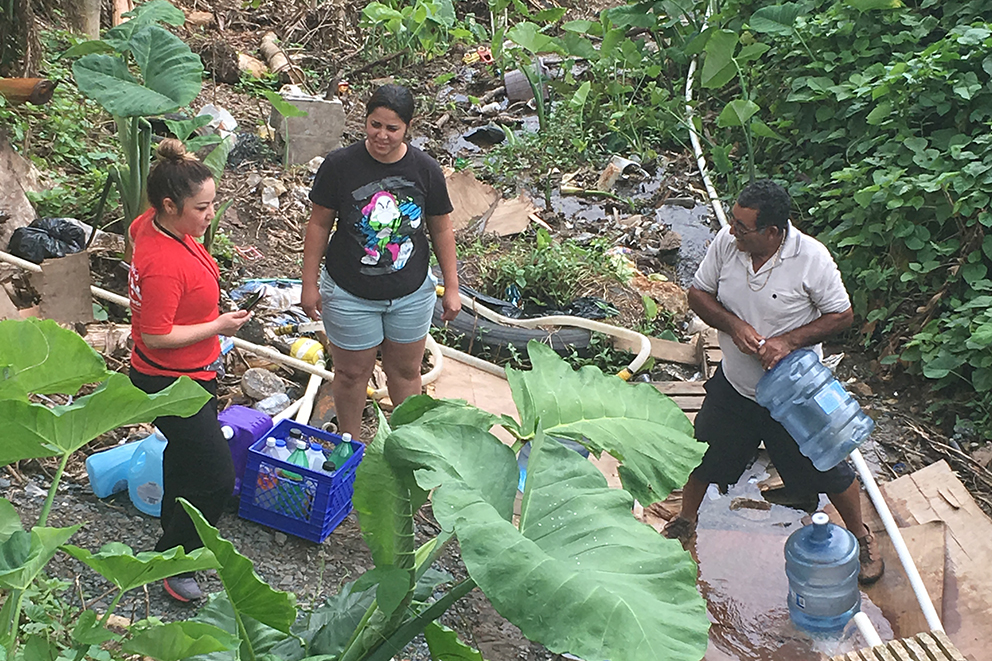
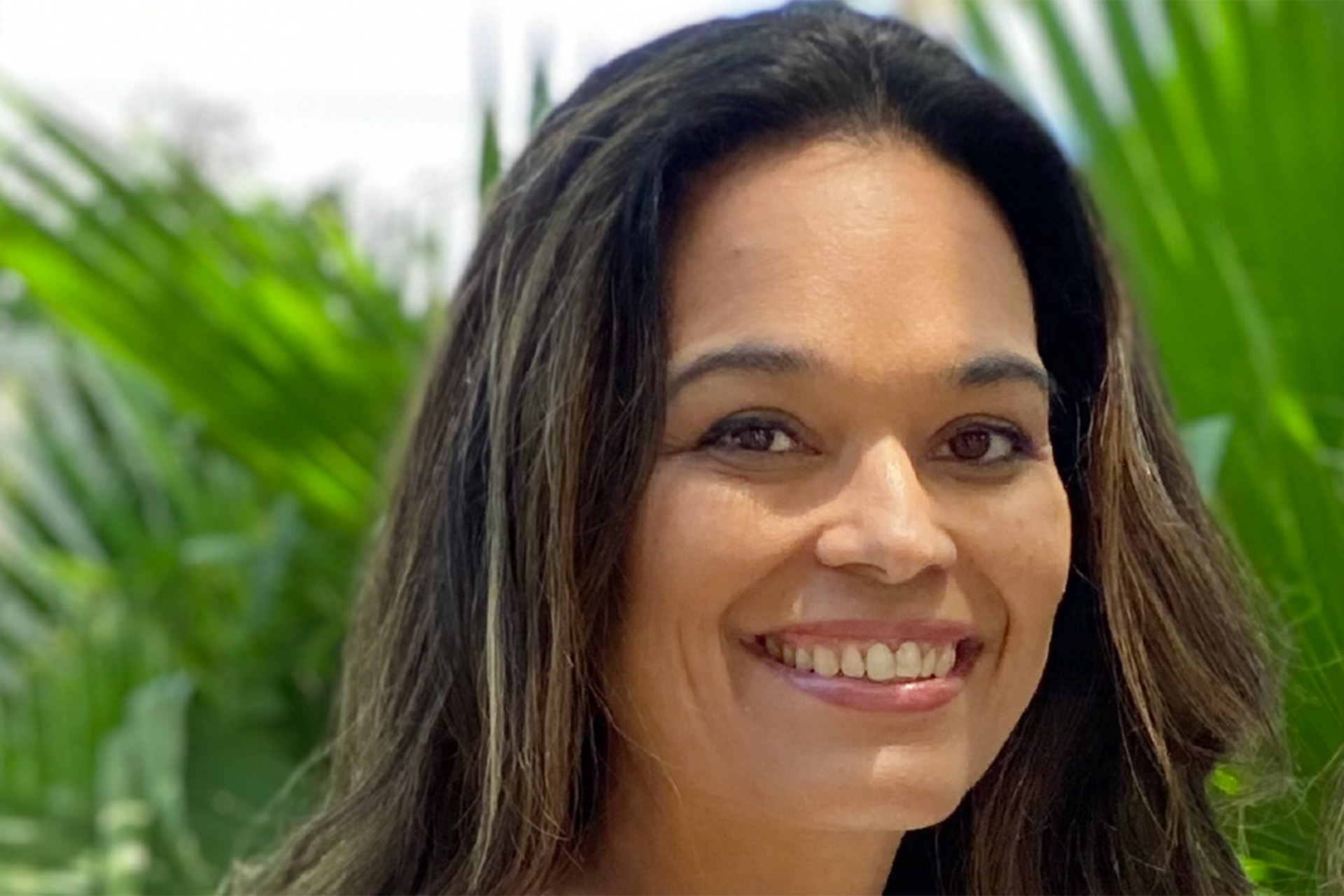
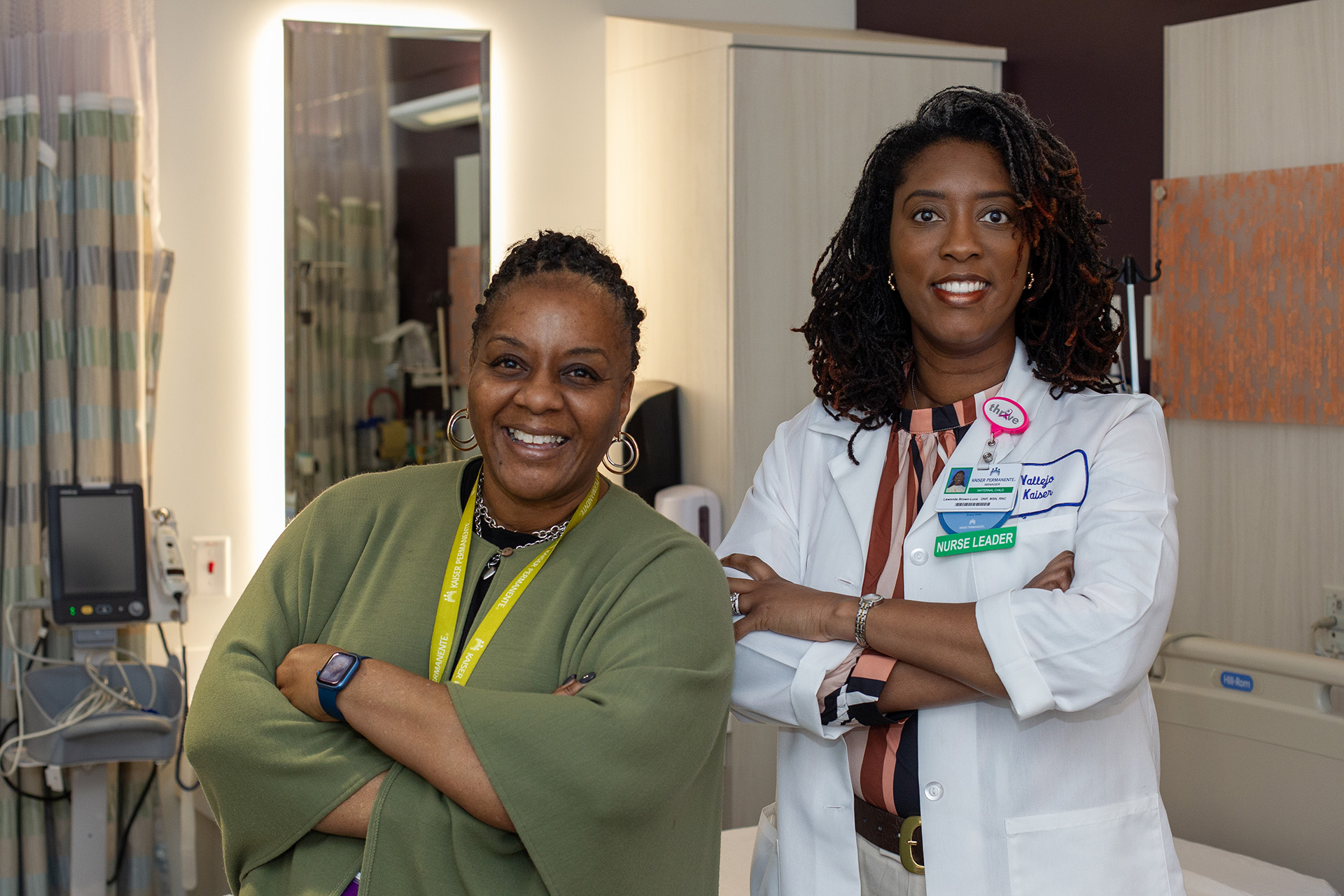
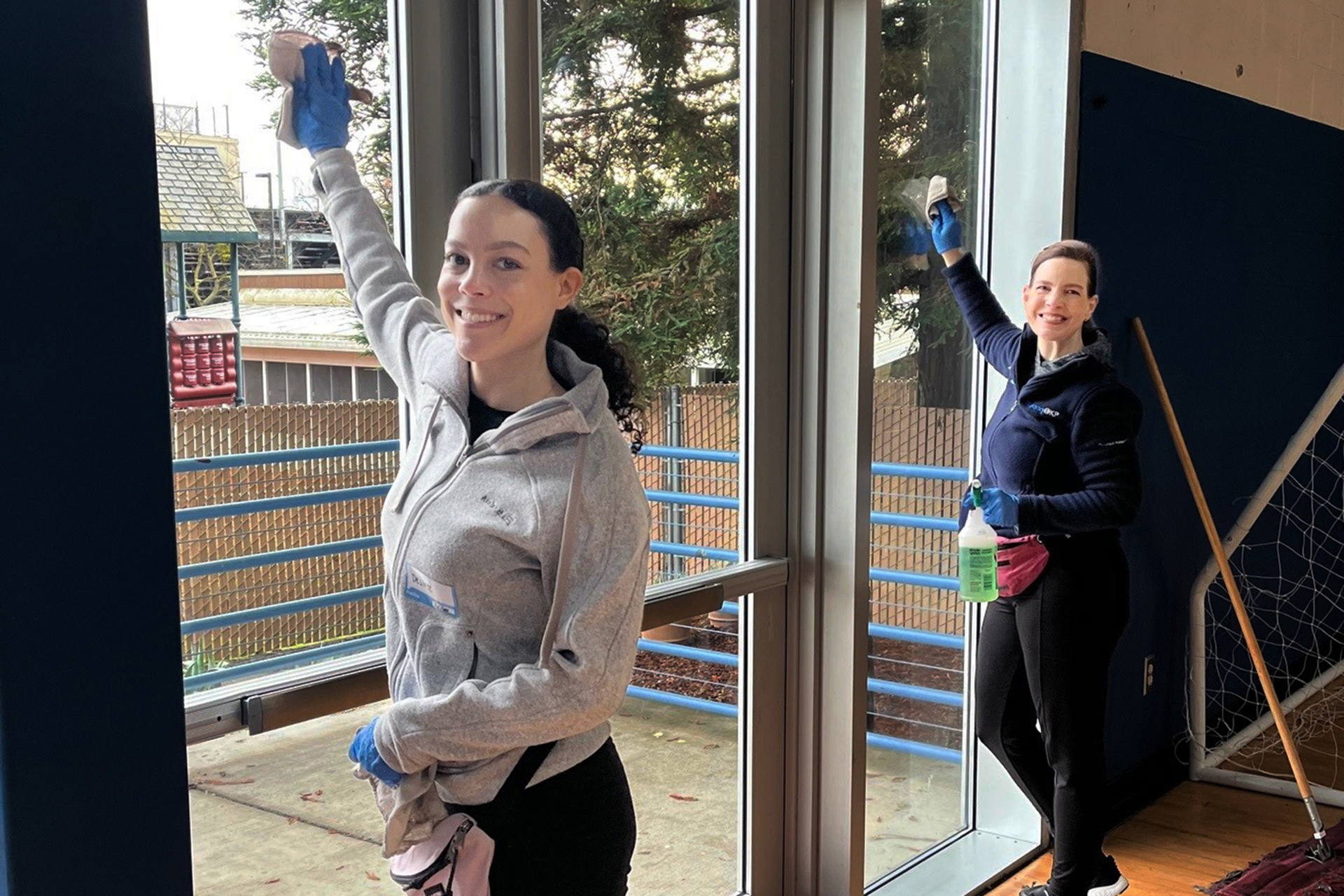
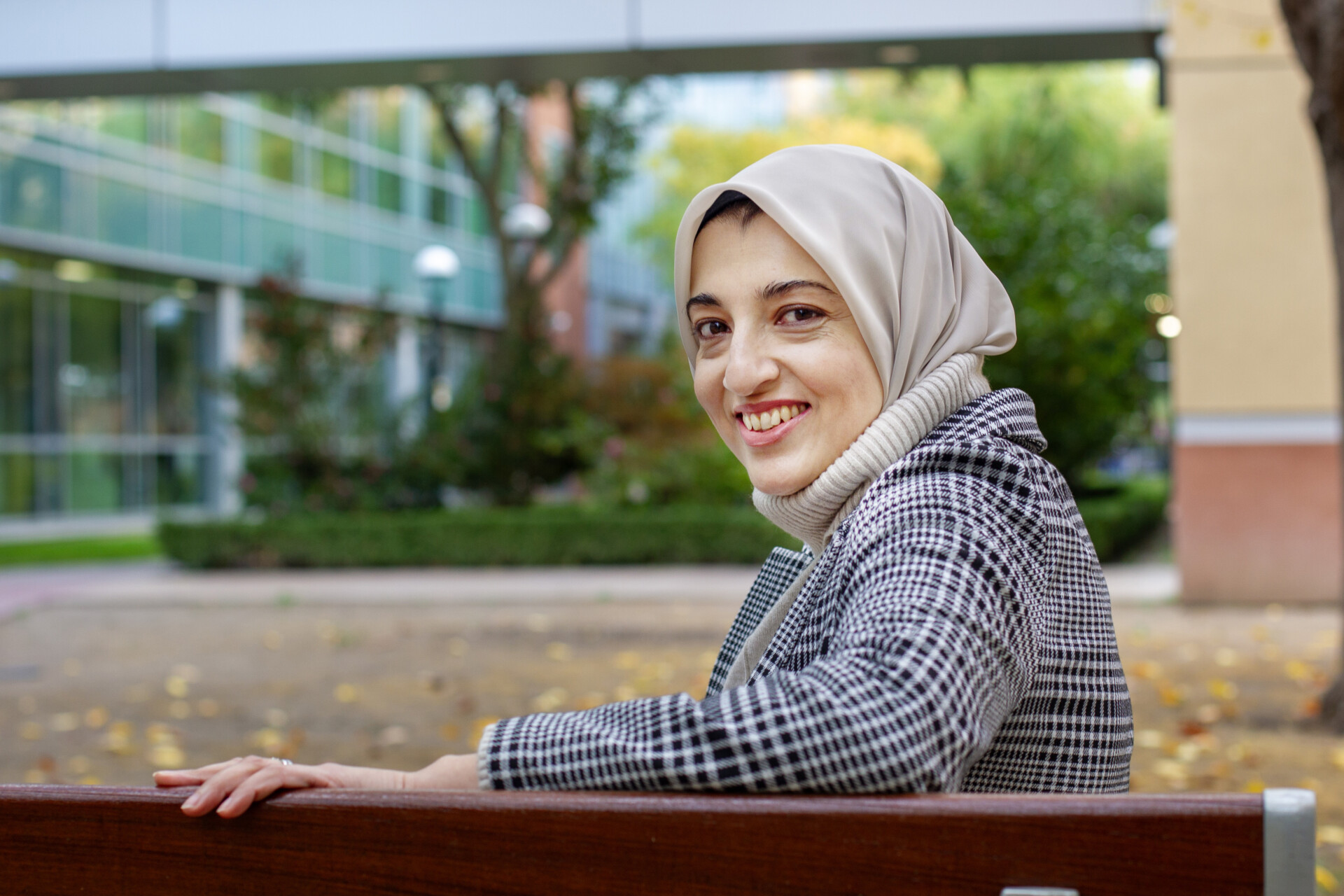
This Post Has One Comment
Wow! You are all so awesome to give of yourselves to help the people of Puerto Rico! May God bless you and your families in Puerto Rico.